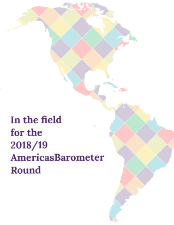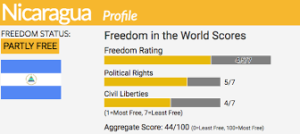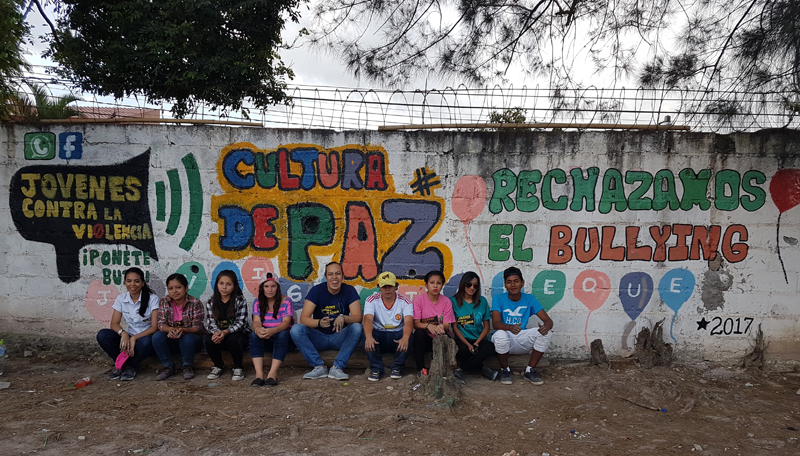 The greatest wave of democratization in history is receding — and crime and violence are to blame. Latin Americans were among the most devoted converts to democracy in the late 20th century, but persistent inequality and corruption damped their enthusiasm and now the orgy of criminal violence plaguing the region is taking its toll, notes Robert Muggah, co-founder of the Igarapé Institute. The latest findings from Lapop, a regional polling group, show that satisfaction and support for democratic institutions are at rock bottom, with just a third of Latin Americans believing that elections are free and fair, he writes for The Financial Times:
The greatest wave of democratization in history is receding — and crime and violence are to blame. Latin Americans were among the most devoted converts to democracy in the late 20th century, but persistent inequality and corruption damped their enthusiasm and now the orgy of criminal violence plaguing the region is taking its toll, notes Robert Muggah, co-founder of the Igarapé Institute. The latest findings from Lapop, a regional polling group, show that satisfaction and support for democratic institutions are at rock bottom, with just a third of Latin Americans believing that elections are free and fair, he writes for The Financial Times:
 Why are Latin Americans so dissatisfied with their democracies? Part of the problem is that the new digitally empowered middle classes are underwhelmed by the performance of their governments. The region as a whole has suffered from anaemic growth, high unemployment and spectacular levels of corruption in recent years. Yet while poor governance and economic stagnation have undoubtedly played a role, the biggest reason for the democratic deficit is violent crime…..
Why are Latin Americans so dissatisfied with their democracies? Part of the problem is that the new digitally empowered middle classes are underwhelmed by the performance of their governments. The region as a whole has suffered from anaemic growth, high unemployment and spectacular levels of corruption in recent years. Yet while poor governance and economic stagnation have undoubtedly played a role, the biggest reason for the democratic deficit is violent crime…..
If there is a silver lining it is that Latin American governments, especially in the cities, are experimenting with novel approaches to disrupting criminal violence. Some enlightened state and city governments in places such as Medellín in Colombia, São Paulo in Brazil, Quito in Ecuador and Montevideo in Uruguay are delivering results, including sharp reductions in murder. Leaders there are setting out crime reduction plans, recruiting community police and strengthening investigatory capacities.
Alongside civil society initiatives, these examples suggest “that the next democratic wave in Latin America will come from below, driven by democrats leading by example,” Muggah adds. RTWT
 Most observers both inside and outside Nicaragua agree that President Daniel Ortega has shifted the country from a democracy to an authoritarian regime. According to Dr Sabine Kurtenbach, acting director of the GIGA Institute of Latin American Studies in Hamburg, Ortega’s actions have often mirrored those of other authoritarian regimes in the region, including those in Guatemala and Venezuela, Deutsche Welle adds:
Most observers both inside and outside Nicaragua agree that President Daniel Ortega has shifted the country from a democracy to an authoritarian regime. According to Dr Sabine Kurtenbach, acting director of the GIGA Institute of Latin American Studies in Hamburg, Ortega’s actions have often mirrored those of other authoritarian regimes in the region, including those in Guatemala and Venezuela, Deutsche Welle adds:
For years, the political and economic support for Ortega came from other leftist leaders in the region, including President Nicolas Maduro in Venezuela and President Miguel Díaz-Canel in Cuba. This support propped up the Nicaraguan economy but has since dried up as those countries face economic hardship driven in part by international sanctions. According to Kurtenbach, this means that Ortega had fewer resources to “buy” political support through public policies and instead resorted to repressive methods, thereby alienating former supporters.
“We are now at a point now where his former allies and broader civil society actors can see that this leads not just to the dismantlement of some political freedoms but that this is a full backslide towards authoritarianism,” Kurtenbach said.
The Association of Youth Against Violence (below), a Honduras-based grantee of the National Endowment for Democracy, empowers youth leaders to become ambassadors against violence prevention.








